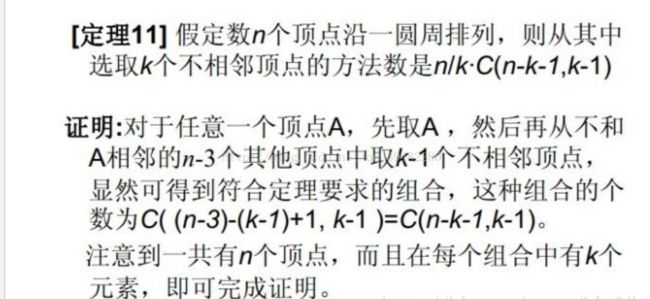- 操作系统基本概念与进程管理:从入门到精通
阿贾克斯的黎明
软考软考
目录操作系统基本概念与进程管理:从入门到精通一、常见操作系统与计算机系统层次结构二、操作系统的概念、功能与特征三、操作系统的发展与分类四、进程管理(一)进程的状态与状态转换(二)前驱图(三)进程同步与互斥机制(四)信号量机制与PV操作(五)PV操作实现前驱关系(六)死锁(七)银行家算法在计算机的世界里,操作系统就像是一位幕后的“大管家”,默默管理着计算机的各种资源,协调着各种程序的运行。今天,咱们
- 安装mysql数据库的一系列心得
以下是详细的MySQL数据库安装教程:Windows系统一、下载安装包1.打开浏览器,访问MySQL官方网站(https://dev.mysql.com/downloads/mysql/)。2.在下载页面,根据你的Windows操作系统版本(32位或64位)选择合适的MySQLCommunityServer安装包。一般推荐下载最新的稳定版本。3.下载完成后,找到安装文件(.msi格式)。二、安装过
- 创客匠人联盟生态:重构家庭教育知识变现的底层逻辑
创小匠
重构人工智能大数据
在《家庭教育促进法》推动行业刚需化的背景下,单一个体IP的增长天花板日益明显。创客匠人提出的“联盟生态思维”,正推动家庭教育行业从“单打独斗”转向“矩阵作战”,其核心在于通过工具整合资源,将“同行竞争”转化为“生态共赢”。一、行业趋势:从个体IP到联盟矩阵的必然跃迁数据显示,2024年家庭教育新增服务超10万项,同质化竞争导致获客成本上涨40%。创客匠人联盟模型的破局点在于:当30位区域IP组成联
- 【STM32仿真】基于STM32单片机设计的秒表时钟计时器仿真系统
阿齐Archie
单片机项目合集stm32嵌入式硬件单片机proteus
基于STM32单片机设计的秒表时钟计时器仿真系统演示视频基于STM32单片机设计的秒表时钟计时器仿真系统摘要本设计基于STM32单片机,设计并实现了一个秒表时钟计时器仿真系统。系统通过显示器实时显示当前时间,并通过定时器实现秒表计时功能。显示小时、分钟、秒、毫秒,通过按键可调整时分秒和毫秒的时间。在键盘上输入要设置的时间,按*进入时间修改,之后在按*回退到上一位数字,按#表示修改完成。系统采用模块
- 干货!大模型时代一定要收藏的 20 个LLM 中文数据集
OpenBayes
资源上新人工智能语言模型数据库机器学习
自ChatGPT重磅推出以来,大语言模型(largelanguageModel,LLM)以其卓越的学习能力在各个领域引起轰动。大模型的训练和调优离不开优质庞大的数据支撑,精心构建的数据集不仅为大模型提供了充分的燃料,还为大模型在垂直领域的应用和性能提升提供了可能。本文整理了一些适用于大模型训练调优的热门中文公开数据集(按照首字母A-Z顺序排列),以供大家了解和使用。温馨提示:本文列举的所有数据集,
- SQLserver数据库学习笔记
溪衡
学习
小记1:1.newid()我觉得是一个生成唯一键的好方法,不用自增控制主键,可以用这个试试,注意不做处理的话,需要36位。例如:在数据库中直接使用语句selectnewid()2.nolock按我的理解是“不上锁的”,所谓的脏读,大多用的都是这个东西,据说可以提高查询速度。3.go批处理语句,将前面的代码作为一批处理。4.内连接与简单多表在数据量少的时候查询速度差距并不明显。5.删除和更新数据时,
- python与anaconda安装(先安装了python后安装anaconda,基于python已存在的基础上安装anaconda)——逼死强迫症、超详解
苹果酱0567
面试题汇总与解析java开发语言中间件springboot后端
版权声明:本文为CSDN博主「牛斌帅」的原创文章,遵循CC4.0BY-SA版权协议,转载请附上原文出处链接及本声明。原文链接:https://blog.csdn.net/qq_43529415/article/details/100847887目录一、安装python(python3.7.4)1、下载(1)下载1(32位)(2)下载2(64位)2、安装3、配置python环境变量4、检验pytho
- el-table合并行+数据按照相同名称排序+相同名称内的数据在排序
Web·强
elementui遇到的问题前端javajavascript
项目场景:项目需求:后端给我返回的数据:原因分析:后端数据所有的内容排列是无顺序的相同名称的不一定靠在一起图片只是巧合,如果按照后端返回的格式直接赋给表格的tabledata那么顺序就不是我们想要的,所以我们首先要把数据处理成我们想要的数据格式。①根据需求首先把数据里的相同名称进行排序然后在将相同名称里的版本从高到低排序②将名称相同的合并成一行并将序号也进行合并解决方案:需求①:this.tabl
- 手把手教程:在 VS2017 32位 Windows 环境下编译 OR-Tools 9.6 并集成到 C++ 项目
A小庞
C++知识算法c++开发语言or-tools算法库
OR-Tools是Google开源的优化算法库,支持路径规划、线性规划、约束编程等多种功能。本文将详细介绍在VisualStudio201732位Windows环境下编译OR-Tools9.6的两种方法:联网自动下载依赖和手动编译依赖项,并提供避坑指南。方法一:联网自动下载依赖(推荐新手)步骤1:克隆OR-Tools仓库gitclonehttps://github.com/google/or-to
- 基于MATLAB的资源优化与工期固定-资源均衡分析方法研究【附代码】
拉勾科研工作室
matlab开发语言
算法与建模领域的探索者|专注数据分析与智能模型设计✨擅长算法、建模、数据分析matlab、python、仿真✅具体问题可以私信或查看文章底部二维码✅感恩科研路上每一位志同道合的伙伴!(1)资源均衡优化相关理论与问题分类在现代工程项目中,资源的合理分配和使用是确保项目按时完成、成本可控的关键因素。资源均衡优化作为项目管理中的核心环节,旨在通过调整资源的使用方案,使资源消耗在整个工期内尽可能平稳,避免
- 医学图像增强的层级化模糊与虚拟仪器无参考质量评价研究【附代码】
拉勾科研工作室
计算机视觉图像处理人工智能
算法与建模领域的探索者|专注数据分析与智能模型设计✨擅长算法、建模、数据分析matlab、python、仿真✅具体问题可以私信或查看文章底部二维码✅感恩科研路上每一位志同道合的伙伴!(1)层级模糊隶属度的X光医学图像增强算法针对X光医学图像普遍存在的对比度差、细节模糊等问题,本算法提出了一种基于层级模糊隶属度的增强方法。该方法的核心思想在于利用拉普拉斯金字塔分解图像,并在多尺度下分层计算模糊隶属度
- 如何在 ArcGIS 中使用 Microsoft Excel 文件_20250614
Lauren_Lu
arcgismicrosoftexcel
如何在ArcGIS中使用MicrosoftExcel文件软件版本:win11;ArcGIS10.8;Office20241.确认ArcGIS10.8对.xlsx文件的支持ArcGIS10.8支持.xlsx文件(Excel2007及以上格式),但需要安装MicrosoftAccessDatabaseEngine驱动程序来读取这些文件。ArcGIS10.8是一个32位应用程序,因此需要32位的驱动程序
- BTC官网关注巨鲸12亿美元平仓,XBIT去中心化交易平台表现稳定
在全球加密货币市场波动加剧的背景下,2025年5月25日传出重磅消息。据今日最新国际报道,知名巨鲸JamesWynn完全平仓价值12亿美元的BTC多头仓位,整体盈利约845万美元,此举引发市场广泛关注。与此同时,收益型稳定币市场迎来爆发式增长,去中心化交易所平台在市场动荡中展现出卓越的稳定性和抗风险能力。巨鲸大举平仓,市场信号值得关注今日中午,币界网监控显示,加密货币市场出现重要变化。知名巨鲸投资
- 【stm32】标准库学习——USART串口
许白掰
【stm32】标准库学习单片机stm32嵌入式硬件学习
目录一、USART串口1.串口参数及时序2.USART简介3.配置USART基本结构4.初始化模板(1)接收一个数据(2)发送一个数据一、USART串口1.串口参数及时序波特率:串口通信的速率起始位:标志一个数据帧的开始,固定为低电平数据位:数据帧的有效载荷,1为高电平,0为低电平,低位先行校验位:用于数据验证,根据数据位计算得来停止位:用于数据帧间隔,固定为高电平本节展示串口收发的功能,通常使用
- 数电·优先编码器 CD4532的使用方法
Hi_kenyon
单片机嵌入式硬件
如何使用CD4532编码器CD4532是一个8输入优先编码器的集成电路芯片。它有8个输入信号(D0至D7),3个输出信号(A0至A2),以及一个有效输出信号(EO),这个信号可以用来判断是否有输入信号为高电平。这个芯片的功能是将8个输入信号编码为一个3位的二进制数,其中D7具有最高的优先级。使用CD4532的步骤如下:连接电源:将Vdd(芯片的第16脚)连接到+5V电源,将Vss(芯片的第8脚)连
- AI写作实战:从零开始撰写项目提案
SuperMale-zxq
AI编程写作投资专栏AI写作java人工智能AI编程python
AI写作实战:从零开始撰写项目提案为什么大多数项目提案一出生就已经死亡?还记得上周看到一封邮件吗?一位读者小李发了他精心准备的项目提案,希望有人给些建议。打开附件的那一刻,我叹了口气——这又是一份"自嗨式提案":密密麻麻的文字堆砌、技术术语泛滥、价值主张模糊不清。我发现数千份项目提案中,有超过80%在开头几分钟就失去了读者的注意力。更残酷的是,决策者通常只会花60秒浏览你的提案,如果没有在这短暂时
- 2025.6.27总结
天真小巫
职场记录职场和发展
最近工作又开始内耗了,一位同事的转岗直接让我破防了,明明他工作干得很不错,会得又多,性格又好,我还经常请教他业务上的问题。我和他的关系并不算太好,但他加入其他部门,竟然让我有些不舍,这种不舍,不清楚是怎么回事。再工作中,给予我帮助的同事有不少,但和他共事,我学会了很多业务上的东西,合作的也挺愉快的,工作上的协作也很顺利。年初时,主管还跟我说,我们整个团队,就是战友,工作中相处的时间比家人还长。我当
- 【基于ESP32-S3的Modbus RTU单双精度浮点数验证方案】
2345VOR
#Arduino小项目开发工业通讯esp32s3ModBusRTU浮点数
基于ESP32-S3的ModbusRTU单双精度浮点数验证方案一、核心功能升级在工业自动化场景中,单纯的整型数据已无法满足高精度测量需求。本文在原有ADC数据采集方案基础上,通过ModbusRTU协议扩展实现以下功能升级:新增1路16位浮点数(3.3V量程)新增1路32位双精度浮点数(±2.5V量程)保持原有4通道ADC数据传输本方案在原有ADC数据采集基础上,重点实现单双精度浮点数(float&
- 力扣网C语言编程题:在数组中查找目标值位置
魏劭
逻辑编程题C语言算法c语言leetcode
一.简介本文记录一下力扣网上涉及数组的问题:排序数组中查找目标值的位置。主要以C语言实现。二.力扣网C语言编程题:在数组中查找目标值位置题目:在排序数组中查找元素的第一个和最后一个位置给你一个按照非递减顺序排列的整数数组nums,和一个目标值target。请你找出给定目标值在数组中的开始位置和结束位置。如果数组中不存在目标值target,返回[-1,-1]。你必须设计并实现时间复杂度为O(logn
- 力扣网C语言编程题:接雨水(双指针法)
魏劭
逻辑编程题C语言c语言leetcode算法
一.简介前面文章是以动态规划方法实现的,文章如下:力扣网C语言编程题:接雨水(动态规划实现)-CSDN博客本文继续针对力扣网的接雨水问题,以另一种解题思路(双指针)以C语言实现和Python实现。二.力扣网C语言编程题:接雨水(双指针法)题目:接雨水给定n个非负整数表示每个宽度为1的柱子的高度图,计算按此排列的柱子,下雨之后能接多少雨水。示例2:输入:height=[4,2,0,3,2,5]输出:
- C++高精度除以高精度
洛谷题真多
算法c++算法
高精度除以高精度的问题,在计算机科学中是一个常见的挑战,特别是在处理非常大的数字时,这些数字超出了标准数据类型(如int或longlong)的范围。这里,我们将详细解释一种常见的方法来解决这个问题:模拟手工除法。基本思路模拟手工除法的过程,即将一个高精度数(被除数)除以另一个高精度数(除数),并逐位计算商和余数。步骤详解初始化:设定被除数A和除数B(均为高精度数
- 【基数排序介绍】
wdwc2
算法设计算法数据结构排序算法
文章目录前言一、基数排序是什么?二、基数排序的步骤(LSD低位优先)1.找出最大数的位数2.对每一位进行排序(从最低位到最高位)三、C++实现1.主函数:基数排序实现四、时间复杂度分析五、基数排序的适用场景六、与其他排序算法对比七、扩展:处理负数的思路总结前言在处理大规模整数排序问题时,比较类排序(如快速排序)可能无法发挥最优性能。本篇博客将详细介绍一种非比较类排序算法:基数排序(RadixSor
- 如何将数的第n位 置0 或者 置1,查询第n位是否为0
盼雨落,等风起
计算机基础C语言技巧c语言数据结构c++开发语言
一先让1向左移n-1位得到a;二如果置1那么就数|a;三如果置0那么就数&(~a)#includeintmain(){inttemp=0xfff3ffff;printf("tempis%x\n",temp);temp=temp|(3<<18);printf("tempis%x\n",temp);temp=temp&(~(3<<18));printf("tempis%x\n",temp);}使用位运
- xe-utils使用总结
WebCsDn_TDCode
前端前端javascript
toNumber(num)的使用在使用toNumber(num)转数值时,测试开发环境正常,正式环境异常对于XEUtils.toNumber("2,234.00")在正式环境出现转换千位分隔符的字符串为2的情况(具体原因不清楚,有能人志士可以答疑解惑以下),开发测试转换2234正常,对于千位分隔符的字符串需要谨慎使用,可以使用parseFloat("2,234.00".replace(/,/g,"
- STM32 CAN 单个设备回环通信及三个设备互相通信
2401_88885971
网络
一、基本流程基础配置分为三大块:1.CAN外设的初始化RCC时钟初始化(GPIO时钟和CAN1的时钟)GPIO初始化(CAN_TX复用推挽输出模式,CAN_RX上拉输入模式)整个CAN外设的初始化(结构体配置,模式,波特率,各种其余小功能......)单独对过滤器初始化(结构体配置,过滤器位宽、模式、R1R2的值、FIFO关联、使能的参数)最后若是使用中断再加上ITConfig函数使能中断输出,再
- Spring Boot 中@Value注解:看似便捷,实则暗藏玄机?
爆炸糖果
springboot后端java
一、引言在SpringBoot的开发旅程中,我们常常会与各种配置文件打交道,而@Value注解就像是一位贴心的小助手,为我们从配置文件中获取值提供了极大的便利。假设我们正在开发一个简单的用户管理系统,在application.yml文件中配置了数据库连接信息:spring:datasource:url:jdbc:mysql://localhost:3306/user_dbusername:root
- 小程序入门:理解小程序页面配置
you4580
小程序
在小程序开发的领域中,页面配置起着举足轻重的作用。它就像是一位幕后设计师,默默地塑造着每个页面的外观与行为,为用户带来独特的体验。今天,咱们就一起深入探索小程序页面配置的奥秘,揭开它神秘的面纱。一、页面配置文件的作用在小程序的世界里,每个页面都有专属的.json配置文件。当我们新建一个页面时,小程序会贴心地自动生成与之对应的四个文件,其中就包含这个至关重要的配置文件。它的主要职责是对当前页面的窗口
- Flink Oracle CDC Connector详解
24k小善
flinkjava大数据
1.FlinkOracleCDCConnector核心功能功能模块描述实时数据捕获实时捕捉Oracle数据库中的DML操作(INSERT,UPDATE,DELETE)。Schema变更支持支持部分DDL操作的检测(如表结构变更)。端到端一致性确保数据从Oracle到Flink的传输过程中的完整性和一致性。可扩展性支持高吞吐量和大规模数据处理需求。容错机制具备断点续传能力,确保在中断后能够从上次的位
- 力扣刷题(第七十天)
eachin_z
力扣每日打卡leetcode算法职场和发展
灵感来源-保持更新,努力学习-python脚本学习比特位计数解题思路对于任意整数x,其1的个数等于x//2的1的个数加上x%2。状态转移方程:dp[x]=dp[x//2]+(x%2)。classSolution:defcountBits(self,n:int)->List[int]:dp=[0]*(n+1)forxinrange(1,n+1):#x//2对应dp[x>>1]#x%2对应x&1dp[
- 从vue-i18n来分析vue插件是如何工作的
weixin_34365635
javascriptuiViewUI
故事背景vue-i18n是vue代码贡献量第二的vuecoreteam的一位日本小哥写的,虽是第三方插件,用起来心里也舒服.github里搜了vuei18n,结果有不少,有一些很粗糙的,甚至用jquery的lib都有六七十个star.(阻断吐槽).厉害的人明显在设计上代码上都高很多档次吧.今天的故事的主角repo是:vue-i18n与iView.在使用他们的时候报错了,查看了issue,在issu
- [黑洞与暗粒子]没有光的世界
comsci
无论是相对论还是其它现代物理学,都显然有个缺陷,那就是必须有光才能够计算
但是,我相信,在我们的世界和宇宙平面中,肯定存在没有光的世界....
那么,在没有光的世界,光子和其它粒子的规律无法被应用和考察,那么以光速为核心的
&nbs
- jQuery Lazy Load 图片延迟加载
aijuans
jquery
基于 jQuery 的图片延迟加载插件,在用户滚动页面到图片之后才进行加载。
对于有较多的图片的网页,使用图片延迟加载,能有效的提高页面加载速度。
版本:
jQuery v1.4.4+
jQuery Lazy Load v1.7.2
注意事项:
需要真正实现图片延迟加载,必须将真实图片地址写在 data-original 属性中。若 src
- 使用Jodd的优点
Kai_Ge
jodd
1. 简化和统一 controller ,抛弃 extends SimpleFormController ,统一使用 implements Controller 的方式。
2. 简化 JSP 页面的 bind, 不需要一个字段一个字段的绑定。
3. 对 bean 没有任何要求,可以使用任意的 bean 做为 formBean。
使用方法简介
- jpa Query转hibernate Query
120153216
Hibernate
public List<Map> getMapList(String hql,
Map map) {
org.hibernate.Query jpaQuery = entityManager.createQuery(hql);
if (null != map) {
for (String parameter : map.keySet()) {
jp
- Django_Python3添加MySQL/MariaDB支持
2002wmj
mariaDB
现状
首先,
[email protected] 中默认的引擎为 django.db.backends.mysql 。但是在Python3中如果这样写的话,会发现 django.db.backends.mysql 依赖 MySQLdb[5] ,而 MySQLdb 又不兼容 Python3 于是要找一种新的方式来继续使用MySQL。 MySQL官方的方案
首先据MySQL文档[3]说,自从MySQL
- 在SQLSERVER中查找消耗IO最多的SQL
357029540
SQL Server
返回做IO数目最多的50条语句以及它们的执行计划。
select top 50
(total_logical_reads/execution_count) as avg_logical_reads,
(total_logical_writes/execution_count) as avg_logical_writes,
(tot
- spring UnChecked 异常 官方定义!
7454103
spring
如果你接触过spring的 事物管理!那么你必须明白 spring的 非捕获异常! 即 unchecked 异常! 因为 spring 默认这类异常事物自动回滚!!
public static boolean isCheckedException(Throwable ex)
{
return !(ex instanceof RuntimeExcep
- mongoDB 入门指南、示例
adminjun
javamongodb操作
一、准备工作
1、 下载mongoDB
下载地址:http://www.mongodb.org/downloads
选择合适你的版本
相关文档:http://www.mongodb.org/display/DOCS/Tutorial
2、 安装mongoDB
A、 不解压模式:
将下载下来的mongoDB-xxx.zip打开,找到bin目录,运行mongod.exe就可以启动服务,默
- CUDA 5 Release Candidate Now Available
aijuans
CUDA
The CUDA 5 Release Candidate is now available at http://developer.nvidia.com/<wbr></wbr>cuda/cuda-pre-production. Now applicable to a broader set of algorithms, CUDA 5 has advanced fe
- Essential Studio for WinRT网格控件测评
Axiba
JavaScripthtml5
Essential Studio for WinRT界面控件包含了商业平板应用程序开发中所需的所有控件,如市场上运行速度最快的grid 和chart、地图、RDL报表查看器、丰富的文本查看器及图表等等。同时,该控件还包含了一组独特的库,用于从WinRT应用程序中生成Excel、Word以及PDF格式的文件。此文将对其另外一个强大的控件——网格控件进行专门的测评详述。
网格控件功能
1、
- java 获取windows系统安装的证书或证书链
bewithme
windows
有时需要获取windows系统安装的证书或证书链,比如说你要通过证书来创建java的密钥库 。
有关证书链的解释可以查看此处 。
public static void main(String[] args) {
SunMSCAPI providerMSCAPI = new SunMSCAPI();
S
- NoSQL数据库之Redis数据库管理(set类型和zset类型)
bijian1013
redis数据库NoSQL
4.sets类型
Set是集合,它是string类型的无序集合。set是通过hash table实现的,添加、删除和查找的复杂度都是O(1)。对集合我们可以取并集、交集、差集。通过这些操作我们可以实现sns中的好友推荐和blog的tag功能。
sadd:向名称为key的set中添加元
- 异常捕获何时用Exception,何时用Throwable
bingyingao
用Exception的情况
try {
//可能发生空指针、数组溢出等异常
} catch (Exception e) {
- 【Kafka四】Kakfa伪分布式安装
bit1129
kafka
在http://bit1129.iteye.com/blog/2174791一文中,实现了单Kafka服务器的安装,在Kafka中,每个Kafka服务器称为一个broker。本文简单介绍下,在单机环境下Kafka的伪分布式安装和测试验证 1. 安装步骤
Kafka伪分布式安装的思路跟Zookeeper的伪分布式安装思路完全一样,不过比Zookeeper稍微简单些(不
- Project Euler
bookjovi
haskell
Project Euler是个数学问题求解网站,网站设计的很有意思,有很多problem,在未提交正确答案前不能查看problem的overview,也不能查看关于problem的discussion thread,只能看到现在problem已经被多少人解决了,人数越多往往代表问题越容易。
看看problem 1吧:
Add all the natural num
- Java-Collections Framework学习与总结-ArrayDeque
BrokenDreams
Collections
表、栈和队列是三种基本的数据结构,前面总结的ArrayList和LinkedList可以作为任意一种数据结构来使用,当然由于实现方式的不同,操作的效率也会不同。
这篇要看一下java.util.ArrayDeque。从命名上看
- 读《研磨设计模式》-代码笔记-装饰模式-Decorator
bylijinnan
java设计模式
声明: 本文只为方便我个人查阅和理解,详细的分析以及源代码请移步 原作者的博客http://chjavach.iteye.com/
import java.io.BufferedOutputStream;
import java.io.DataOutputStream;
import java.io.FileOutputStream;
import java.io.Fi
- Maven学习(一)
chenyu19891124
Maven私服
学习一门技术和工具总得花费一段时间,5月底6月初自己学习了一些工具,maven+Hudson+nexus的搭建,对于maven以前只是听说,顺便再自己的电脑上搭建了一个maven环境,但是完全不了解maven这一强大的构建工具,还有ant也是一个构建工具,但ant就没有maven那么的简单方便,其实简单点说maven是一个运用命令行就能完成构建,测试,打包,发布一系列功
- [原创]JWFD工作流引擎设计----节点匹配搜索算法(用于初步解决条件异步汇聚问题) 补充
comsci
算法工作PHP搜索引擎嵌入式
本文主要介绍在JWFD工作流引擎设计中遇到的一个实际问题的解决方案,请参考我的博文"带条件选择的并行汇聚路由问题"中图例A2描述的情况(http://comsci.iteye.com/blog/339756),我现在把我对图例A2的一个解决方案公布出来,请大家多指点
节点匹配搜索算法(用于解决标准对称流程图条件汇聚点运行控制参数的算法)
需要解决的问题:已知分支
- Linux中用shell获取昨天、明天或多天前的日期
daizj
linuxshell上几年昨天获取上几个月
在Linux中可以通过date命令获取昨天、明天、上个月、下个月、上一年和下一年
# 获取昨天
date -d 'yesterday' # 或 date -d 'last day'
# 获取明天
date -d 'tomorrow' # 或 date -d 'next day'
# 获取上个月
date -d 'last month'
#
- 我所理解的云计算
dongwei_6688
云计算
在刚开始接触到一个概念时,人们往往都会去探寻这个概念的含义,以达到对其有一个感性的认知,在Wikipedia上关于“云计算”是这么定义的,它说:
Cloud computing is a phrase used to describe a variety of computing co
- YII CMenu配置
dcj3sjt126com
yii
Adding id and class names to CMenu
We use the id and htmlOptions to accomplish this. Watch.
//in your view
$this->widget('zii.widgets.CMenu', array(
'id'=>'myMenu',
'items'=>$this-&g
- 设计模式之静态代理与动态代理
come_for_dream
设计模式
静态代理与动态代理
代理模式是java开发中用到的相对比较多的设计模式,其中的思想就是主业务和相关业务分离。所谓的代理设计就是指由一个代理主题来操作真实主题,真实主题执行具体的业务操作,而代理主题负责其他相关业务的处理。比如我们在进行删除操作的时候需要检验一下用户是否登陆,我们可以删除看成主业务,而把检验用户是否登陆看成其相关业务
- 【转】理解Javascript 系列
gcc2ge
JavaScript
理解Javascript_13_执行模型详解
摘要: 在《理解Javascript_12_执行模型浅析》一文中,我们初步的了解了执行上下文与作用域的概念,那么这一篇将深入分析执行上下文的构建过程,了解执行上下文、函数对象、作用域三者之间的关系。函数执行环境简单的代码:当调用say方法时,第一步是创建其执行环境,在创建执行环境的过程中,会按照定义的先后顺序完成一系列操作:1.首先会创建一个
- Subsets II
hcx2013
set
Given a collection of integers that might contain duplicates, nums, return all possible subsets.
Note:
Elements in a subset must be in non-descending order.
The solution set must not conta
- Spring4.1新特性——Spring缓存框架增强
jinnianshilongnian
spring4
目录
Spring4.1新特性——综述
Spring4.1新特性——Spring核心部分及其他
Spring4.1新特性——Spring缓存框架增强
Spring4.1新特性——异步调用和事件机制的异常处理
Spring4.1新特性——数据库集成测试脚本初始化
Spring4.1新特性——Spring MVC增强
Spring4.1新特性——页面自动化测试框架Spring MVC T
- shell嵌套expect执行命令
liyonghui160com
一直都想把expect的操作写到bash脚本里,这样就不用我再写两个脚本来执行了,搞了一下午终于有点小成就,给大家看看吧.
系统:centos 5.x
1.先安装expect
yum -y install expect
2.脚本内容:
cat auto_svn.sh
#!/bin/bash
- Linux实用命令整理
pda158
linux
0. 基本命令 linux 基本命令整理
1. 压缩 解压 tar -zcvf a.tar.gz a #把a压缩成a.tar.gz tar -zxvf a.tar.gz #把a.tar.gz解压成a
2. vim小结 2.1 vim替换 :m,ns/word_1/word_2/gc
- 独立开发人员通向成功的29个小贴士
shoothao
独立开发
概述:本文收集了关于独立开发人员通向成功需要注意的一些东西,对于具体的每个贴士的注解有兴趣的朋友可以查看下面标注的原文地址。
明白你从事独立开发的原因和目的。
保持坚持制定计划的好习惯。
万事开头难,第一份订单是关键。
培养多元化业务技能。
提供卓越的服务和品质。
谨小慎微。
营销是必备技能。
学会组织,有条理的工作才是最有效率的。
“独立
- JAVA中堆栈和内存分配原理
uule
java
1、栈、堆
1.寄存器:最快的存储区, 由编译器根据需求进行分配,我们在程序中无法控制.2. 栈:存放基本类型的变量数据和对象的引用,但对象本身不存放在栈中,而是存放在堆(new 出来的对象)或者常量池中(字符串常量对象存放在常量池中。)3. 堆:存放所有new出来的对象。4. 静态域:存放静态成员(static定义的)5. 常量池:存放字符串常量和基本类型常量(public static f
